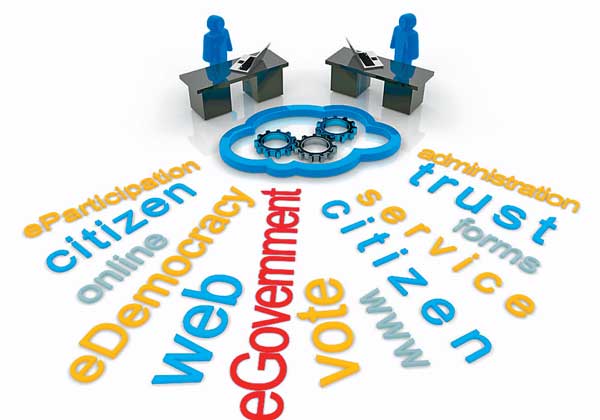15 Jul 2016 - {{hitsCtrl.values.hits}}

 Today we all live in a highly sophisticated world where most of us tend to believe that we could not survive without technology and electronic devices any longer. Consequently, the new generation tends to look for comfort and convenience through technology. Also they are heavily depending on so many electronic devices from smartphones to 3D televisions in order to make their lives more comfortable and convenient.
Today we all live in a highly sophisticated world where most of us tend to believe that we could not survive without technology and electronic devices any longer. Consequently, the new generation tends to look for comfort and convenience through technology. Also they are heavily depending on so many electronic devices from smartphones to 3D televisions in order to make their lives more comfortable and convenient.
On the other hand, today most of us face so many challenges in our day-to-day life. The biggest challenge out of other challenges is to manage 24 hours in a fruitful manner as to save precious time and money. Therefore, it is natural that most of the people do not wish to spend time in big queues in order to get their things done especially in government organisations. They expect everything on their fingertips. Therefore, due to the change in people’s requirements, the government and government institutions are in a tremendous pressure to fulfil the requirements of these people effectively.
Thus, the intention of this brief article is to discuss why the government institutions need reforms in their processes and the importance of technology in government services, especially the need of information and communication technology alias ICT in government services. Also, it is expected to discuss the importance of efficiency, effectiveness, democracy and transparency in government service offered to its citizens through e-government.
Government services
Citizens require various services from the government from their birth to death. Therefore, the prime duty of the government is to facilitate and offer the government services in an efficient, effective and transparent manner to its citizens. Creating such an efficient and effective atmosphere could create a positive picture about the government’s services in the minds of people.
Comparatively, the services offered by the government entities demonstrate a significant improvement nowadays. Technological improvements in the government-owned banks such as Bank of Ceylon and Peoples’ Bank in the recent past have shown us how technology can improve the customer services to a greater height with more satisfaction to their customers with an international taste. Similarly, many praise the efficient services offered by several government entities especially the Immigration and Emigration Department has shown a drastic change in its services offered to customers. However, still many other government institutions require state-of-the-art application of technology especially in their services in order to offer much more efficient, effective and productive services to citizens/customers.
What is e-government?
As per the definition of the World Bank, ‘e-government’ refers to the use by government agencies of information technologies (such as Wide Area Networks, the Internet and mobile computing) that have the ability to transform relations with citizens, businesses and other arms of government. These technologies can serve a variety of different ends: better delivery of government services to citizens, improved interactions with business and industry, citizen empowerment through access to information or more efficient government management. The resulting benefits can be less corruption, increased transparency, greater convenience, revenue growth and/or cost reductions.
E-government aims to make the interaction between:
Here the ‘government’ comprises the executive, legislative and judiciary organs of the government while the ‘consumer/citizen’ includes any member of the civil society (individuals as well as organisations).
Further, e-government means more than offering government services online and modernizing the outdated public administration and includes putting an information system for citizens online. By adopting this concept, any government could realize the following benefits:
Benefits of e-government
E-government enables improve efficiency in government services
Due to the prevailing busy lifestyle of people, they expect that the government will take the necessary steps to improve the efficiency in delivering government services promptly. Therefore, it is necessary to reform the public administration system in the government institutions to meet the greater demand of the citizens rapidly. In this case, technology has a significant role to play when reforming public administration and the process of the government-owned institutions. Especially implementation of ICT is quite crucial and it could facilitate to improve efficiency, effectiveness and productiveness of services offered by the government organisations substantially.
Improving the quality of services
Today, due to the development of communication, people possess inclusive awareness about products and services; as a result, they tend to expect high-quality product or service from the service providers. Thus, as service providers, both the government and government organisations are compelled to deliver quality public services to its citizens. Therefore, such organisations have to use technology (ICT) to produce improvements in services offered by them.
Improving public trust
Improving the trust between the government and the public is quite a vital part in governance. Hence, it also applies in the services offered by the public entities too. E-government enables citizens to take part in the government decision-making process that is e-participation. Thus, it creates a healthy environment for improvement in the democracy and transparency. Greater citizen participation and engagement in the government process could improve the relationship between the government and the public and consequently it enables to build trust between these two parties (government and public).
Apart from the above-mentioned benefits, there are so many other benefits that can be derived from proper implementation of e-government system. However, success of the implementation and sustaining the e-government system is essentially depending on the factors such as willingness of the government to initiate such reforms in the government sector and the leadership (both political and organisational).
Promotion of democracy
The existence of democracy is a key element of good governance. Thus, unlike in orthodox system, e-government allows citizens to take part in the government’s decision-making process. Also, as discussed, e-government encourages greater participation and interaction of people in government services, therefore, there is much more potential to promote democracy. In consequence, by adopting e-government, the citizens will feel that their voice is recognized, considered and respected. Also, more importantly, they will feel that they are also part of the government and governance.
Economic gains
As mentioned above, e-government promotes transparency and accountability in the public administration and it encourages efficiency and productivity in the government sector. Thus, it could create an opportunity for investors to think of investing their time and resources in developing countries like ours. Presently, investors are reluctant to enter into such markets because of the prevailing corruption in developing countries. Thus, proper e-government in place will surely assure more trust amongst the investors to think of entering into such markets.
Further, e-government will eradicate unnecessary costs incurred by the government entities. Also, it could expedite the processes; hence, it could enable to offer services in a much faster manner. Thus, this will reduce the cost of products and services offered by the government organisations. Ultimately, this will enable Sri Lanka to be highly competitive in international businesses as well.
Barriers in e-government implementation
The concept of e-Sri Lanka emerged almost a decade ago, yet, it is still growing and developing at a slow rate. Nevertheless, Sri Lanka has shown a remarkable achievement in implementing its e-government system over the years. For instance, according to the 2014 United Nations e-Government Development Index (eGDI), Sri Lanka has advanced to the 74th position compared to its previous position of 115 out of 193 countries in 2012.
Lack of infrastructure
Initiating an e-government system requires lot of investments both in terms of money and equipment. It requires a huge amount of money in order to place the right infrastructure in place, especially, substantial investment to be made with regard to develop ICT infrastructure in public administration and in government entities around the country. Also, it is mandate that the government should interfere to establish such infrastructure across the country at an affordable rate for its citizens too.
Lack of co-ordination
To implement such system productively, it is obligatory to share the data and information amongst government entities. But it is an evident that most of the government institutions function in isolation. Thus, lack of proper co-ordination among government bodies causes unnecessary delay in offering services to the public and it also could be a costly factor. Therefore, sharing data, information is crucial for successful implementation of e-government system in Sri Lanka.
Security of data, information
This is another key factor that the government has to address carefully. The government should take the necessary steps to ensure the security of the information systems by adopting proper policies. Because, the government should be able to maintain the utmost trust on the system as it could affect its citizens’ security adversely as well.
Lack of awareness
To implement and to operate a successful e-government system, both administrators and citizens should possess a sound knowledge about this system. However, it is an obvious fact that most of the government officials too are not fully aware about the e-government concept. Therefore, the government should take steps to provide the appropriate trainings to the officials especially in the public sector e-government concept and its fundamentals.
Similarly, the government should promote and introduce more awareness programmes on the e-government system among the public to educate and enlighten them on benefits that they can enjoy due to the implementation of e-government. As a result, people will understand the benefit of such a system and will be able to reap the best results from the e-government concept.
Bureaucracy/attitude
As seen and experienced in many Asian countries, Sri Lanka too experiences bureaucracy especially in the government sector. Thus, it causes unnecessary delays in government processes and systems. Therefore, the government sector should take the necessary initiatives to transform the lethargic attitude of the most government employees who are not ready to accept any change. The correct motivational remedial actions will certainly help to eliminate this type of attitudes amongst the employees in the public sector.
Way forward
As discussed above, one may realize the concept of e-government, its benefits and barriers by now. However, due to globalization, things are changing in a rapid manner around the world. Thus, such changes are affecting Sri Lanka and its culture, economy, society, etc., as well.
Nevertheless, when compared to few decades ago, today we have a comparatively good government service. However, it is doubtful whether we can really be proud of our public administration system and services offered by the government entities when compared to other immerging countries, particularly in the Asian region. Therefore, I believe that we need to consider on inducting technology (ICT) in our government institutes in order to offer efficient and effective services to our citizens and this process should be treated very seriously. Thus, the implementation and operation of the e-government system to a greater extent is quite crucial for the better future of Sri Lanka’s public administration system and for the future of government institutes.
Therefore, the government should be ready to take the necessary steps to learn from the best practices and best examples of successful e-governments operated by countries like, Korea (South Korea), Singapore, Australia, etc. Therefore, the associating with such countries could immensely be helpful for Sri Lanka to develop its e-government policy and system. Thus, building sound partnerships and collaborations with such advanced countries will enable Sri Lanka to learn, share and gain their enormous experiences to develop Sri Lanka’s own e-government system. Learning from such partnerships will bring success and will be beneficial for the citizens of Sri Lanka as well.
(Tharanga Thilakasiri holds Master’s both in Public Administration and Business Administration and he can be reached at [email protected])
10 Jan 2025 2 hours ago
10 Jan 2025 2 hours ago
10 Jan 2025 3 hours ago
10 Jan 2025 4 hours ago
10 Jan 2025 4 hours ago